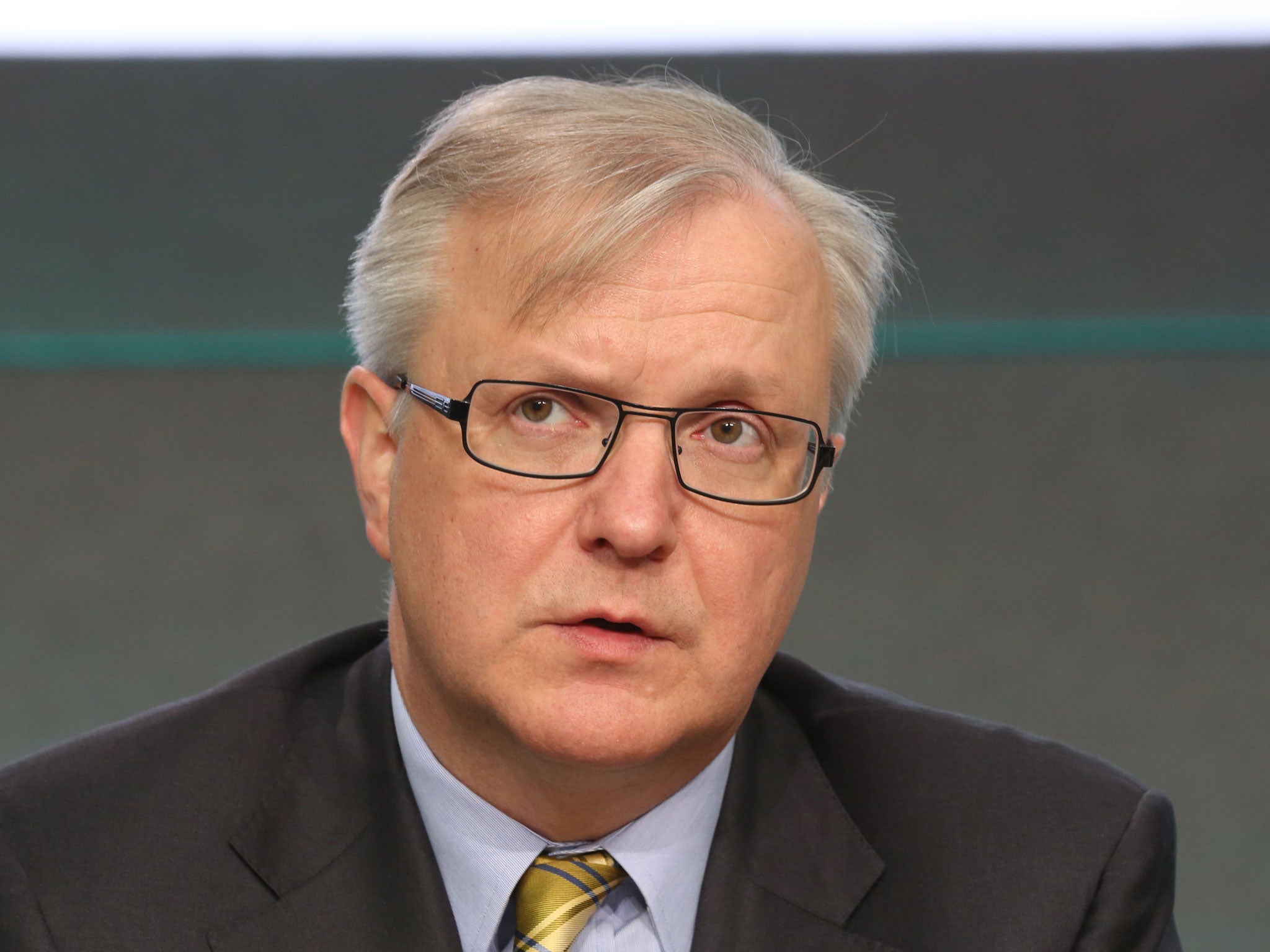Tax rises in France have reached 'fatal' level, warns EU official
Olli Rehn urges cuts to spending as François Hollande seeks to reduce deficit

Tax increases imposed by the Socialist-led government in France have reached a “fatal level”, the European Union’s commissioner for economic affairs said today.
Olli Rehn warned that a series of tax hikes since the Socialists took power 14 months ago – including €33bn in new taxes this year – threatens to “destroy growth and handicap the creation of jobs”.
His warning came as President François Hollande and his Prime Minister Jean-Marc Ayrault are finalising plans for deficit cuts and long-term pension reform which will almost certainly impose new fiscal burdens on French businesses and households in 2014.
The government has also announced that it plans to press ahead with a “carbon” or “green” tax to try to push the French economy away from dependence on fossil fuels.
In a speech to close the Socialist Party “summer university” in La Rochelle, Mr Ayrault promised that the green tax would take the form of a fiscal “reshuffle”, rather than an extra layer of taxation. France’s overall tax burden, running at around 48.5 per cent of GDP, would not rise, he promised.
Since he came to power, President Hollande has kept his electoral promise to attack French deficits and accumulated debt. He has done so, however, almost entirely by tax increases rather than by cuts in a state apparatus which swallows 56.6 per cent of the country’s GDP. Mr Hollande pledged in May that the pace of tax hikes would slacken in 2014 and would cease almost entirely in the period 2015-2017. Steep cuts in state spending would be imposed, he said, to bring France’s annual deficit down to 3 per cent of GDP in 2015 – meeting a target set by Brussels.
Since then, however, it has emerged that final budget plans for 2014 will include at least €6bn in tax rises. This figure does not include the impact of a programmed rise in the basic rate of VAT from 19.6 per cent to 20 per cent from January next year. Plans for reforms to the state pension and health systems, both in chronic deficit, will be finalised this week. They are likely to include a rise in a levy on household payments of up to 0.5 per cent.
Mr Hollande’s 75 per cent “temporary” tax on incomes over €1m – also blocked by constitutional objections – may also finally take effect in 2014.
In an interview with Le Journal du Dimanche, Mr Rehn praised the “structural reforms” introduced under Mr Hollande, including a shift towards more flexible rules on hiring and firing. But Mr Rehn said that the reforms were not sufficiently bold or rapid.
He called on France to increase its competitiveness by reducing the tax burden on business, to remove barriers protecting services and professions, and to abolish the “quasi-monopoly” of the state railway and electricity companies. Most of all, he said, France could not afford to increase its level of taxation. “Tax rises have already reached a fatal level,” he said. “Higher taxes would destroy growth and handicap the creation of jobs. Budgetary discipline must now depend on cuts in public expenditure, not on new taxes.”
Mr Rehn’s comments came as France, and Europe, enter a critical period. The tentative signs of recovery in the eurozone could strengthen or evaporate in the next four months depending on the continuing strength of Germany but also, perhaps more importantly, on whether confidence returns to France.
Unexpectedly, French economic activity grew by 0.5 per cent in the second quarter of this year after two quarters of decline. This was a performance almost as strong as that of the United Kingdom and Germany.
But the economic picture is blurred. Consumption in France is recovering but is unpredictable. Manufacturing, after a boom in April, has started to fall away again. The next unemployment figures, due on Tuesday, will be poor but François Hollande remains convinced he can deliver his promise that the tide of increasing joblessness will turn by the end of the year.
Join our commenting forum
Join thought-provoking conversations, follow other Independent readers and see their replies
0Comments